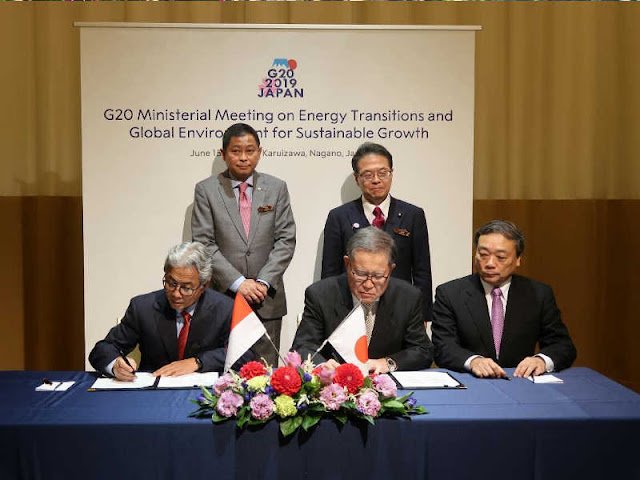
TOKYO, LELEMUKU.COM - Inpex Corporation announced today that it has signed a Heads of Agreement (HOA) with Indonesian authorities (the authorities) on behalf of the contractors with the endorsement of Shell Upstream Overseas Ltd. (Shell) on the basic principles regarding a revised Plan of Development (POD) for the Abadi LNG Project (Project).
The Project involves developing the Abadi gas field in the Masela Block located in the Arafura Sea, Tanimbar Islands, Maluku Province, Indonesia. Inpex, as the operator of the Project and on behalf of the project’s contractors, Inpex and Shell has been engaged in discussions with the authorities with the aim of submitting the revised POD.
The HOA outlines the terms agreed upon with the authorities following discussions held after the completion of Pre-FEED work on a revised POD to achieve an economically competitive project. The cost estimation in the revised POD of the Project which will include the construction of onshore LNG plant, gas pipeline, and offshore facilities, is contained in the agreed terms of the HOA.
The signing of the HOA acknowledges agreement between the parties of a revised POD that is sufficiently economically competitive. Inpex will now commence the process of submitting the revised POD for approval as well as amending and extending the Masela Block production sharing contract (PSC).
“The execution of the Heads of Agreement, which follows a series of constructive discussions with the Indonesian government, positions the Abadi LNG Project as an economically competitive project by international standards. Inpex appreciates and values the proactive intervention of His Excellency Ignasius Jonan, Minister for Energy and Mineral Resources and the Indonesian government, and looks forward to maintaining close and cooperative relations,” said Takayuki Ueda, President & CEO of Inpex, who attended the signing.
Utilizing the knowledge and experience gained through operating the Ichthys LNG Project, Inpex will continue to work closely with its partner Shell to make the necessary preparations to commence FEED work after receiving approval of the revised POD and reaching an agreement with the authorities on the PSC amendments and extension.
Commenting on the signing, Clare Harris, Shell’s Executive Vice President, Venture Development said, “The Heads of Agreement is a significant milestone in the development of the Abadi project, an important economic opportunity for Indonesia. We look forward to continuing our collaboration and support of Inpex as the Joint Venture aims to develop a competitive project.”
The Project is the first large-scale integrated LNG development project operated by Inpex in Indonesia and follows on from the Inpex-operated Ichthys LNG Project in Australia. The Project is expected to produce approximately 9.5 million tons of LNG per year.
The Abadi gas field features excellent reservoir productivity and has one of the world’s largest reserves, raising expectations of efficient development and stable LNG production operations over the long-term.
The Project will provide significant contributions to the Republic of Indonesia and bring multiplier effects to Indonesia particularly in the eastern region. The impact of this matter on the company’s consolidated financial results for the year ending December, 2019 is nil.
Inpex Corporation is Japan’s largest exploration and production (E&P) company, and a mid-tier E&P player just behind the world’s oil majors. Inpex is currently involved in approximately 70 projects across more than 20 countries, including the Ichthys LNG Project in Australia as Operator.
Through sustainably growing its oil and gas development business, developing a global gas value chain business and reinforcing its renewable energy initiatives, Inpex aims to become a leading energy company and continue providing a stable and efficient supply of energy to its customers. (Inpex)






